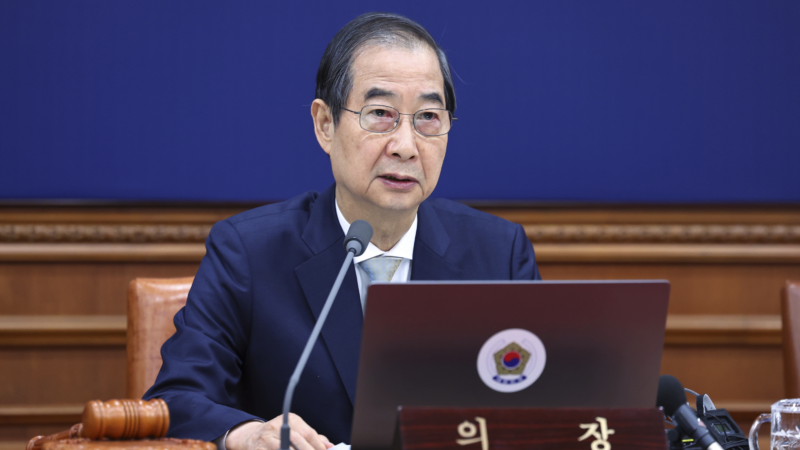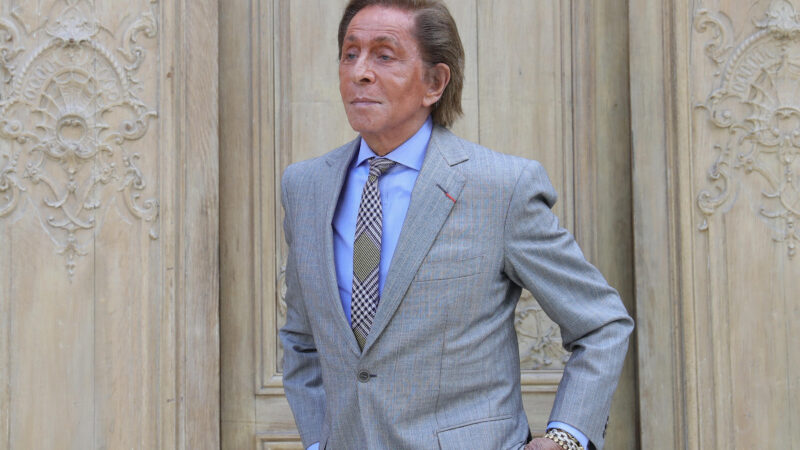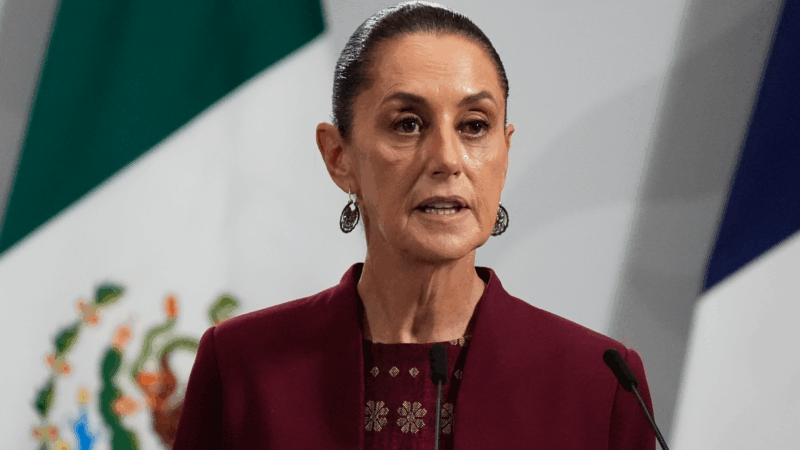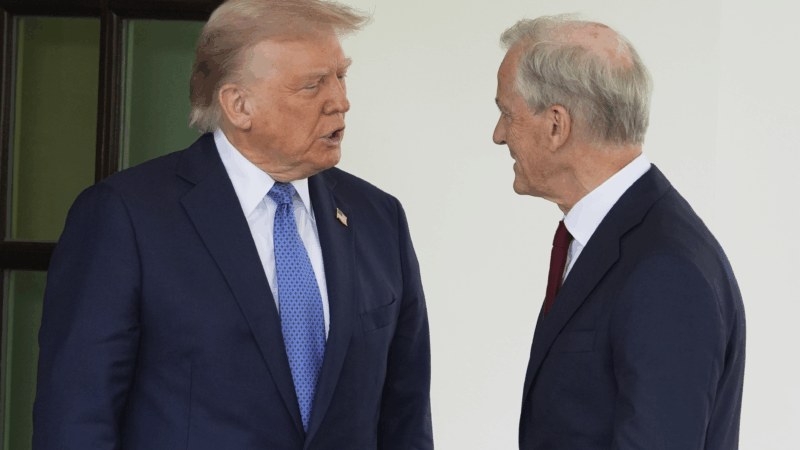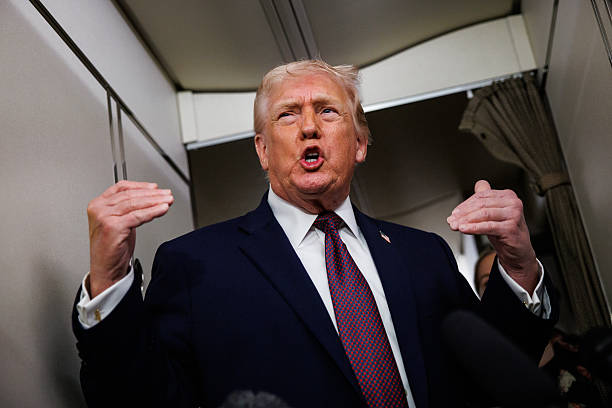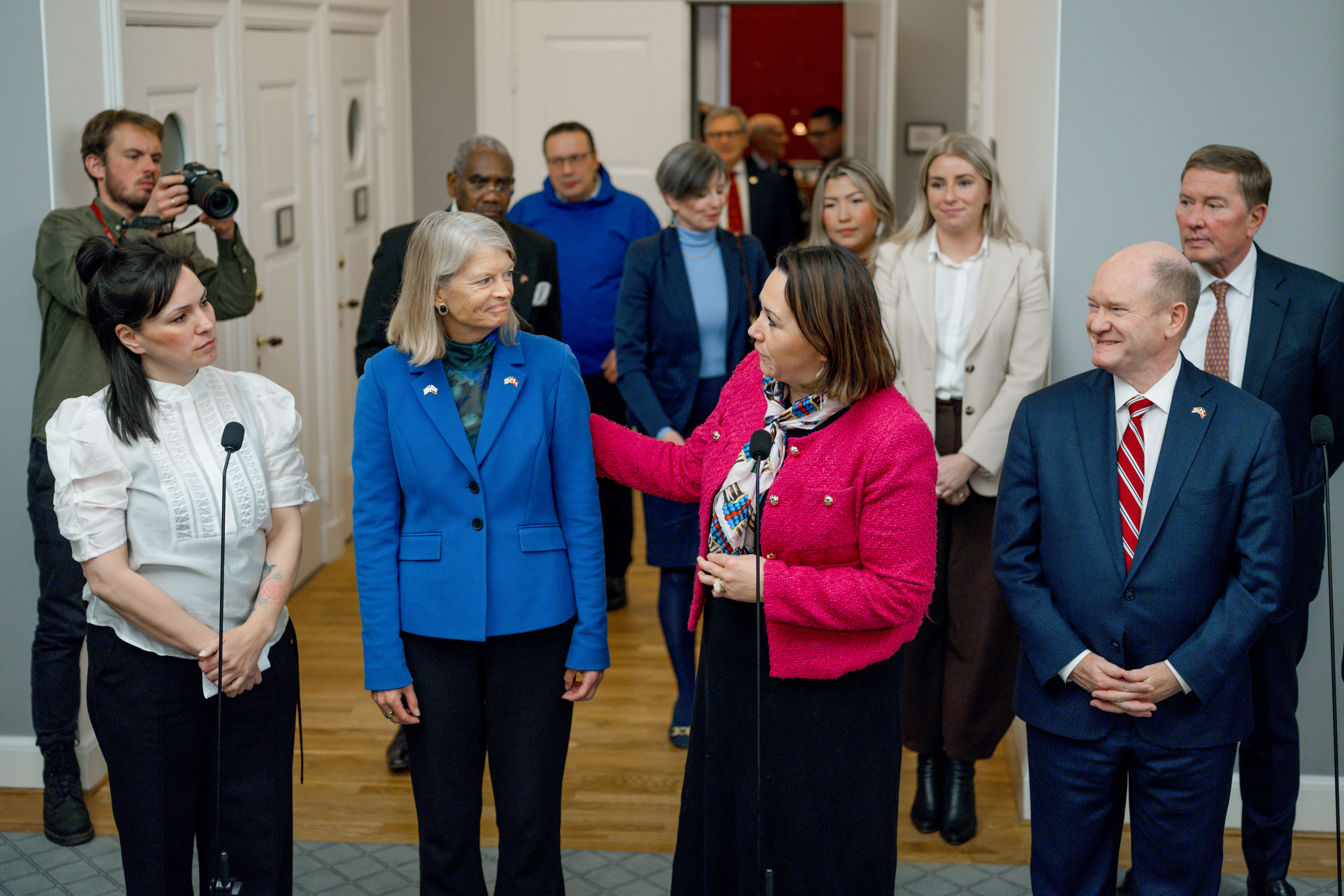South Korean court reinstates impeached PM Han Duck-soo as acting leader
SEOUL, South Korea — South Korea’s Constitutional Court on Monday overturned the impeachment of Prime Minister Han Duck-soo, reinstating the nation’s No. 2 official as acting leader, while not yet ruling on the separate impeachment of President Yoon Suk Yeol.
Many observers said Monday’s ruling doesn’t signal much on the upcoming verdict on Yoon, as Han wasn’t a key figure in Yoon’s martial law imposition. But it could still embolden Yoon’s staunch supporters and ramp up their political offensive on the opposition.
Han became acting president after Yoon, a conservative, was impeached by the liberal opposition-controlled National Assembly over his Dec. 3 imposition of martial law that triggered a massive political crisis. But Han was impeached by the assembly as well in late December following political strife with opposition lawmakers.
The unprecedented, successive impeachments that suspended the country’s top two officials intensified a domestic division and deepened worries about the country’s diplomatic and economic activities. The deputy prime minister and finance minister, Choi Sang-mok, had since serving as acting president.
On Monday, seven of the court’s eight justices overturned or dismissed Han’s impeachment. They ruled the accusations against him weren’t against the law or weren’t serious enough to remove him from office or his impeachment motion didn’t even meet a required quorum when it passed thorough the assembly. One justice upheld Han’s impeachment.
Dismissing Han would have needed the support of at least six court justices.
Following his reinstatement, Han told reporters he would focus on the “most urgent matters,” including a fast-changing global trade environment, in an apparent reference to the Trump administration’s aggressive trade policies. He also called for a national unity, saying “there’s no left or right — what matters is the advancement of our nation.”
The court has yet to rule on Yoon’s impeachment. If the court upholds Yoon’s impeachment, South Korea must hold an election for a new president. If it rules for him, Yoon will be restored to office and regain his presidential powers.
Yoon was impeached about two weeks earlier than Han. Observers earlier predicted the Constitutional Court would rule on Yoon’s case in mid-March but it hasn’t done so.
Yoon has been separately arrested and charged with rebellion in connection with his martial law decree. If convicted of that charge, he would face the death penalty or a life sentence. On March 8, Yoon was released from prison, after a Seoul district court allowed him to stand his criminal trial without being detained.
Massive rival rallies backing Yoon or denouncing Yoon have divided the streets of Seoul and other major cities in South Korea. Earlier surveys showed that a majority of South Koreans were critical of Yoon’s martial law enactment, but those supporting or sympathizing with Yoon have later gained strength.
At the center of squabbling over Yoon is why he sent hundreds of troops and police officers to the assembly after declaring martial law. Yoon says he aims to maintain order, but senior military and police officers sent there have said that Yoon ordered them to drag out lawmakers to prevent a floor vote to overturn his decree. Enough lawmakers eventually managed to enter an assembly hall and voted it down unanimously.
Han, a career diplomat who was appointed by Yoon, had attempted to reassure diplomatic partners and stabilize markets, when he served as acting president. A major trigger for the opposition’s push for his impeachment was Han’s refusal to fill three vacancies on the nine-member Constitutional Court bench.
Restoring the court’s full membership was sensitive because a ruling upholding Yoon’s impeachment requires support from at least six justices.
Han’s successor, Choi Sang-mok, appointed two new justices but left the ninth seat vacant.
Both Han and Choi cited needing bipartisan consent to add justices to the court, but their critics suspected they were siding with Yoon’s People Power Party, which wanted to increase Yoon’s chances of returning to power. On Friday, the main liberal opposition Democratic Party and other small opposition parties submitted an impeachment motion on Choi.
Italian fashion designer Valentino dies at 93
Garavani built one of the most recognizable luxury brands in the world. His clients included royalty, Hollywood stars, and first ladies.
Sheinbaum reassures Mexico after US military movements spark concern
Mexican President Claudia Sheinbaum quelled concerns on Monday about two recent movements of the U.S. military in the vicinity of Mexico that have the country on edge since the attack on Venezuela.
Trump says he’s pursuing Greenland after perceived Nobel Peace Prize snub
"Considering your Country decided not to give me the Nobel Peace Prize… I no longer feel an obligation to think purely of Peace," Trump wrote in a message to the Norwegian Prime Minister.
Trump has rolled out many of the Project 2025 policies he once claimed ignorance about
Some of the 2025 policies that have been implemented include cracking down on immigration and dismantling the Department of Education.
Can exercise and anti-inflammatories fend off aging? A study aims to find out
New research is underway to test whether a combination of high-intensity interval training and generic medicines can slow down aging and fend off age-related diseases. Here's how it might work.
U.S. lawmakers wrap reassurance tour in Denmark as tensions around Greenland grow
A bipartisan congressional delegation traveled to Denmark to try to deescalate rising tensions. Just as they were finishing, President Trump announced new tariffs on the country until it agrees to his plan of acquiring Greenland.

